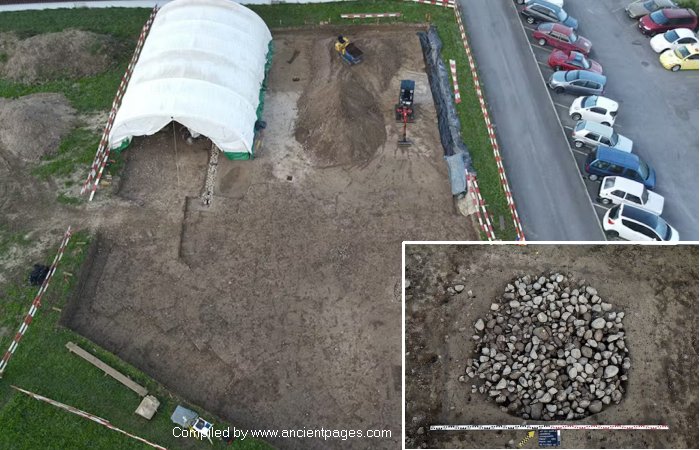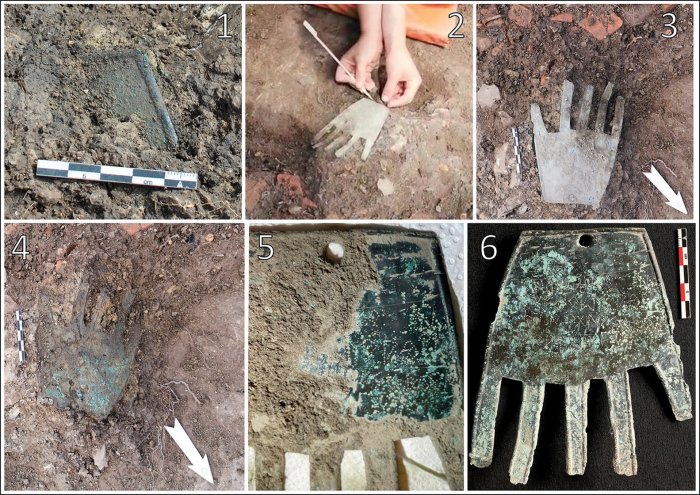Conny Waters – AncientPages.com – Our modern society depends on the clock. Almost everything we do must be made on time. Whether going to school, work, or meeting friends, we need the clock to live.
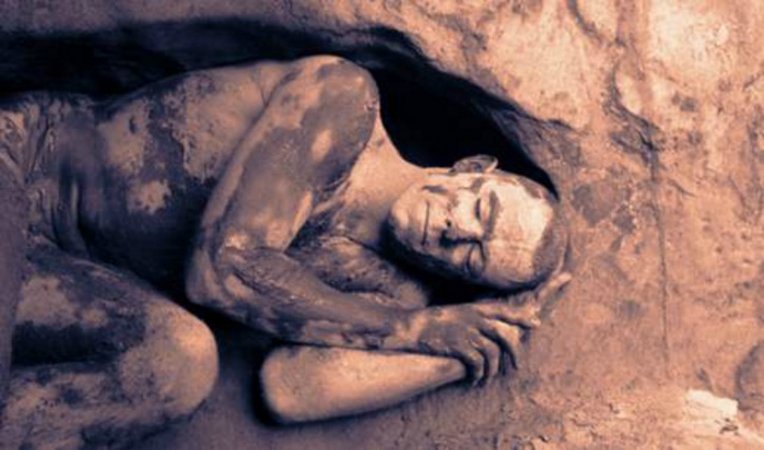
Image source
Undoubtedly, following the hours can sometimes be stressful, but it has become necessary.
But relying on and dependent on day and night hours is nothing new. Ancient people also had duties that had to be performed on time. Sleeping the whole day was not on the agenda of our ancestors.
So, how did ancient people wake up on time before the ancient Greeks invented the alarm clock?
We know that the basic idea of an alarm clock can be traced to Ctesibius, an ancient Greek engineer, physicist, and mathematician who lived in Alexandria, Ptolemaic Egypt.
Ctesibius (285–222 BC) was the Father of Pneumatics, a branch of engineering that uses gas or pressurized air. Ctesibius was a great scientist ahead of his time. Some even describe him as an ancient genius. He is best known for his three inventions – the suction pump, the water clock, and the hydraulis, a musical instrument that is the ancestor of the pipe organ. The oldest clocks in history are water clocks.
However, long before people learned about water clocks, they still managed to get up on time.
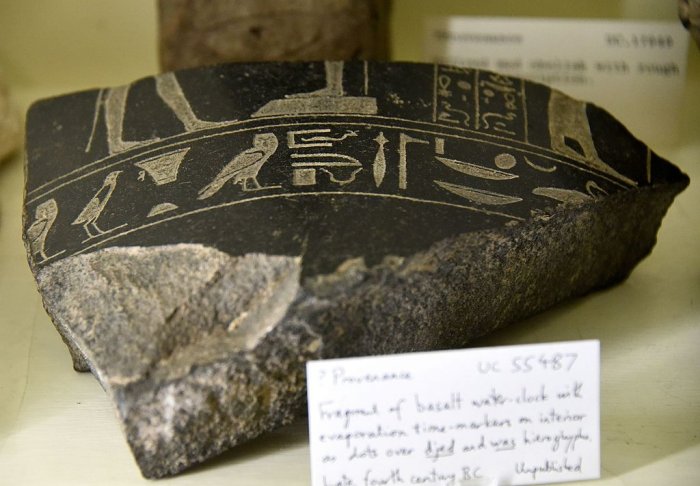
Fragment of a basalt water-clock, with evaporation time markers on interior as dots on djed and was hieroglyphs. Late period, 30th Dynasty. From Egypt. The Petrie Museum of Egyptian Archaeology, London. Credit: Public Domain – CC BY-SA 4.0
Native Americans also relied on water, but not in the same way. By drinking plenty of water, Native Americans could wake up earlier than expected, but unfortunately, not at a specific time. This over-drinking practice was utilized by Native Americans well into the 20th century.
Ancient Egyptians had another effective method that helped them to wake up on time. In 245 B.C., ancient Egyptians came up with an ingenious invention that later became known as the world’s first mechanical clock. They simply put water “into a vessel on an hourly basis to tell the time. By adding an alarm mechanism such as a pellet hitting a metallic plate, an effective alarm clock was created.” 1
As time pᴀssed and many people became Christian, religious bells also served to mark the pᴀssage of time throughout the day before people wore watches. Christians knew that the sound of bells called churchgoers to prayer in the morning. To Muslims, prayers marked the start of the day, and they still do that today.
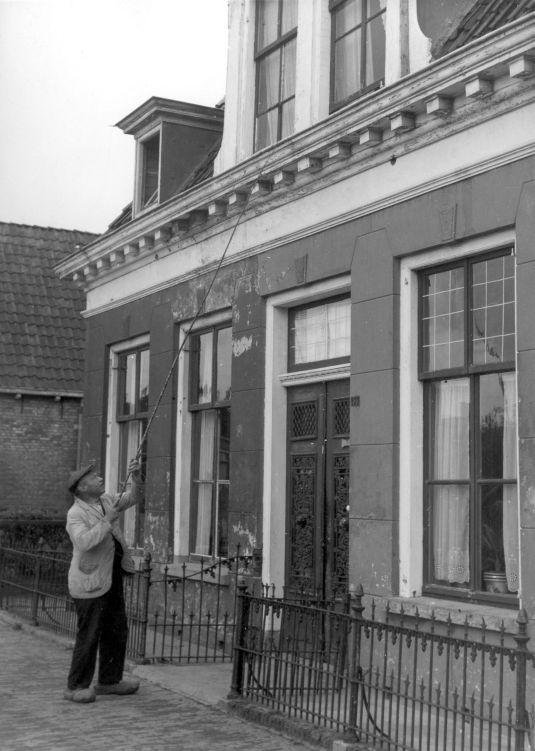
A knocker-upper in Leeuwarden. Credit: Public Domain
During the Industrial Revolution, when alarm clocks were neither cheap nor reliable, the Knocker Upper gained prominence. A Knocker-Upper was a profession in Britain and Ireland, and those people were responsible for waking sleeping people so they could get to work on time. Factories hired a person to “knock on windows with a long stick or a pea shooter to make sure employees arrived at the mill on time.” 1
But who woke the knocker uppers? According to author Richard Jones, “the knocker uppers were night owls and slept during the day instead, waking at about four in the afternoon.” 2
One problem knocker uppers faced was ensuring workers were kept from getting woken up for free.
“When knocking up began to be a regular trade, we used to rap or ring at the doors of our customers,” Mrs Waters, a knocker-upper in the north of England, told an intrigued reporter from Canada’s Huron Expositor newspaper in 1878.
“The public complained of being disturbed… by our loud rapping or ringing, and the knocker-up soon found out that while he knocked up one who paid him, he knocked up several on each side who did not,” she continued.
See also: More Ancient History Facts.
The solution they hit on was modifying a long stick with which to tap on the bedroom windows of their clients, loudly enough to rouse those intended but softly enough not to disturb the rest.
Later, when the alarm clock became cheaper, and everyone could afford one, the Knocker-Upper profession ceased. Still, one can imagine how tiresome it must have been to walk in the early, cold morning when everyone was asleep in a warm bed.
See also: More Ancient History Facts
Written by Conny Waters – AncientPages.com Staff Writer
Updated on January 4, 2024
Copyright © AncientPages.com All rights reserved. This material may not be published, broadcast, rewritten or redistributed in whole or part without the express written permission of AncientPages.com
Expand for references
- All About History, Issue 35
- Sitala Peek – Knocker uppers: Waking up the workers in industrial Britain, BBC
- The Huron Expositor – Mar 22, 1878

